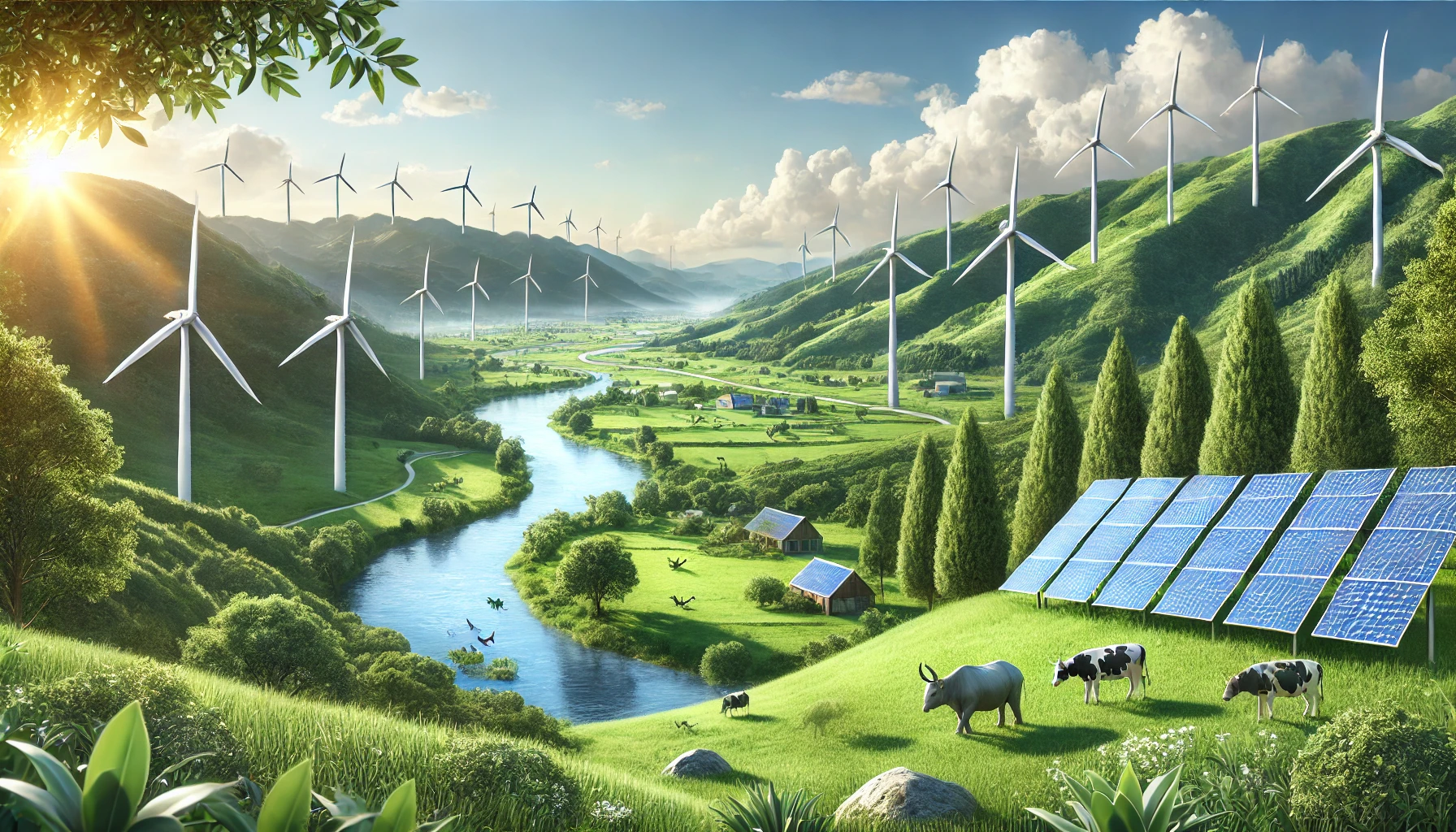Green Wealth of Nations: Redefining Natural Resources for a Sustainable Future
The study emphasizes leveraging natural wealth sustainably to drive economic growth, address global challenges, and safeguard ecological balance. It advocates for integrating environmental considerations into economic policies, investing in renewable energy, fostering innovation, and promoting international collaboration for a sustainable future.

Research developed by a coalition of leading research institutes and environmental economists underscores the pivotal role of natural wealth in driving sustainable economic growth and resilience. It argues that many nations harbor untapped natural resources such as forests, fisheries, and renewable energy sources that, if managed sustainably, could become transformative engines of wealth and societal well-being. The report emphasizes that ecological sustainability and economic prosperity are deeply interdependent, and continuing to undervalue natural capital poses significant risks to both. The paper highlights that integrating environmental stewardship into national development strategies is critical for addressing global challenges like climate change, biodiversity loss, and resource depletion.
Valuing Natural Capital to Prevent Depletion
A core argument of the paper is that conventional economic models often fail to account for the true value of natural capital. This oversight has led to the widespread degradation of ecosystems and unsustainable exploitation of resources, exposing nations to economic and environmental vulnerabilities. The report calls for integrating environmental costs into national accounting systems to better capture the real value of natural resources. By doing so, policymakers can make more informed decisions that promote long-term sustainability rather than short-term gains. For instance, incorporating the costs of deforestation, water pollution, and air quality deterioration into economic planning would provide a clearer picture of the trade-offs involved in resource extraction and industrial development. Additionally, the paper highlights the importance of not only preserving but enhancing natural capital through investments in restoration, conservation, and sustainable management practices.
Green Transition Strategies for Economic Resilience
To support the transition to greener economies, the paper provides a comprehensive roadmap that includes renewable energy investment, innovation in green technologies, and reforming harmful subsidy systems. Renewable energy development is identified as a cornerstone of sustainable growth. Investments in solar, wind, and hydropower infrastructure can significantly reduce dependence on fossil fuels, improve energy security, and mitigate the impacts of climate change. The authors highlight the economic benefits of such investments, including job creation, reduced energy costs, and increased competitiveness in the global green economy. Furthermore, the report advocates for eliminating subsidies for environmentally damaging industries and redirecting these funds to initiatives that promote sustainability. This would level the playing field for green industries and create incentives for adopting sustainable practices across sectors.
Innovation and Global Collaboration as Key Drivers
Innovation is another critical pillar of the paper’s vision for sustainable economic transformation. Governments and private sectors are urged to prioritize research and development in green technologies, such as advanced renewable energy systems, resource-efficient manufacturing, and sustainable agriculture practices. Public-private partnerships, tax incentives for green R&D, and international collaboration are presented as essential enablers for fostering innovation. The authors argue that innovation not only drives economic growth but also positions nations as leaders in the global shift toward sustainability. Moreover, the paper emphasizes the necessity of international cooperation in addressing environmental challenges that transcend national borders. Issues like climate change and biodiversity loss require coordinated global action. Multilateral agreements such as the Paris Agreement are highlighted as frameworks for fostering collaboration, while financial and technical support for developing nations is deemed critical to achieving equitable global sustainability.
Redefining Natural Wealth for a Sustainable Future
In its concluding sections, the policy paper makes a compelling case for reimagining natural wealth as the cornerstone of inclusive and sustainable development. It argues for a paradigm shift where natural resources are no longer viewed merely as assets to be exploited but as essential components of economic resilience and social well-being. This shift requires bold and innovative policies that integrate environmental stewardship into economic planning. The report warns that delays in adopting sustainable practices could exacerbate existing crises, limiting opportunities for future generations and intensifying global inequalities. By prioritizing environmental considerations and leveraging natural wealth sustainably, nations can unlock significant economic potential while safeguarding ecological balance.
Ultimately, the paper serves as both a wake-up call and a roadmap for policymakers, businesses, and civil society. It urges them to embrace a new vision for economic growth one rooted in sustainability, equity, and resilience. Through investments in renewable energy, fostering innovation, and adopting supportive policies, nations can chart a course toward a prosperous and environmentally secure future. The report concludes with a message of urgency: the time to act is now. Without decisive action, the global community risks losing the opportunity to harness natural wealth effectively, jeopardizing both planetary health and economic stability. By treating natural resources as foundations for development rather than commodities for exploitation, the paper argues that nations can achieve a balanced and sustainable future for all.
- FIRST PUBLISHED IN:
- Devdiscourse










